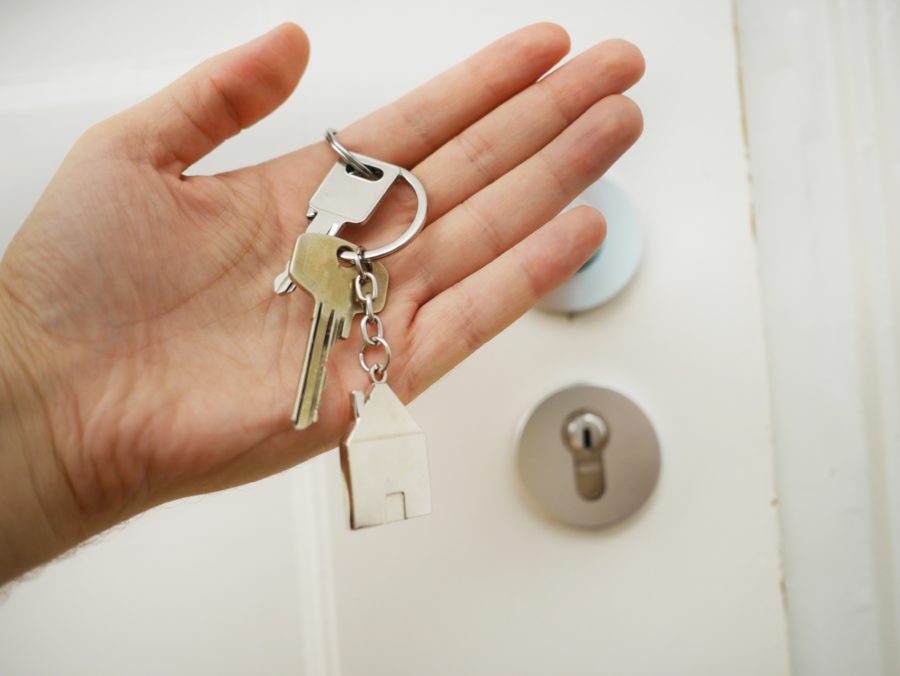You decided to buy a home in Arizona? Great! That’s fantastic. Homeownership is a major pathway to building wealth for most people. But hang on a minute… it’s important that you do your homework first. Slow and steady wins the home! Take your time, do things right and try not to make the following common mistakes buyers have made and you will be well on your way to getting the home you want!
1. They didn’t use a real estate professional.
There are a number of homebuyers who think they can go it alone. This is a big mistake because real estate agents go through extensive training to assist buyers through the intricate process of buying a home from beginning to end. They know how to negotiate the terms of the contract on your behalf and surround themselves with reputable professionals in the real estate industry (mortgage lenders, escrow companies, repair contractors, home inspection companies,appraisers, attorneys, etc). They understand the escrow and lending process to monitor the transaction and ensure it’s moving along as smoothly as possible while keeping you informed along the way. As with most people, this will likely be the largest purchase of your life. You can expect to pay at least $200,000 for a 3 bedroom, 2 bath single-family home in Arizona, if not more. I don’t know about you but I don’t go around spending over $200,000 dollars in one transaction everyday… let alone ever! That is, unless it’s on a home. On average, people live in the homes they buy for 5-7 years. It’s not very often because it is a big deal. Is this a journey you want to go through without a real estate expert? It is their knowledge and experience that will help you to get through this so you don’t feel lost. Then there are some homebuyers who have the misguided notion they should just go directly through the listing agent. You will get no additional benefit by going this route as the listing agent is employed by the seller and represents their interests first. You will not get a ‘deal’ thinking you’ve eliminated the middle man. Instead, you’ve just paved the way for the listing agent to get commission for both sides of the deal. Put it this way, would you hire the same attorney to represent you in a lawsuit that also represents the opposing party? Sounds crazy, doesn’t it? While not illegal, you must understand that this diminishes your representation. Although the listing agent has a duty to treat both sides fairly, he/she cannot negotiate on your behalf against the seller and in actuality, their duties are limited for both sides once they become a dual agent. It’s better to have a separate agent that represents your interests and has your back. Besides, quite often, having a buyer’s agent does not cost you out of pocket as the commission is customarily paid by the seller. More importantly, your buyer’s agent will be your trusted partner in all aspects of your home purchase. They can do lots of ‘handholding’ for those first-timers and offer advice based on their experience on the pros and cons of how to approach offers and negotiating through the inspection and appraisal phases. By the way, in addition to resale homes, your chosen real estate professional can help you explore purchasing For Sale By Owner as well as new construction homes. And while all real estate agents are licensees, not all real estate agents are Realtors®. Realtors® are members of the National Association of Realtors® and are held to a higher standard. We follow a strict Code of Ethics and most pursue additional training and certification in the field above and beyond the average licensee. Whoever you decide to use, interview up to three reputable real estate professionals to find one that you like, that has experience in the current market, and understands your needs best.
2. They didn’t get prequalified BEFORE looking at homes.
There’s nothing worse than looking at multiple homes first, falling in love with one, wanting to submit an offer and then deciding to get prequalified only to find out that – either you cannot be approved for a loan OR cannot qualify for the home you want because it’s out of your price range. What a letdown and huge waste of your time, don’t you agree? This happens more often than you might think. So once you’ve selected a real estate professional, ask them for recommendations of 2-3 trusted mortgage lenders so you have options when getting prequalified. And, the more documents you provide to the lender, the better they can pre-qualify you. It presents you as a solid buyer and strengthens your offer on any potential home you want to pursue. Besides, the prequalification letter is usually valid for 60-90 days. Now I’ve also seen situations where buyers refused to get prequalified until they found a home they liked first and underestimated the time it would take to round up the documents needed for the lender. By the time they got prequalified, the house they wanted went under contract. A ready, prequalified buyer beat them to it. Once you get prequalified, your mortgage lender will give you the price range of homes you qualify for. That’s when you get with your real estate professional who will now be able to send you listings within your budget so you can find a home to fall in love with that you can afford! Win! (NOTE: In hot markets like we are experiencing now, it would be wise to get a strong pre-approval in hand right away which is a more thorough vetting process of your loan application.)
3. They didn’t read the purchase contract and related property documents.
These are legal documents. The residential purchase contract is the primary document that will help you buy the home you want. I would say it’s definitely worth your time to read. And don’t rely on someone else to read it for you either. Whoever is buying the home should be reading it. I always give a sample copy of the purchase contract to my buyers early in the process to ensure they are familiar with it. We go over it together so they have a good understanding and can ask me questions about parts they don’t fully understand. Don’t wait until you are ready to make an offer. There is too much excitement and many buyers find it difficult to focus on the fine print. Read it when you are not feeling rushed. It is also important that you take time to review all of the other paperwork, like the Home Owners Association CC&R’s (if applicable) as they include the rules and regulations of a community. You are bound by the CC&Rs if you buy into a subdivision run by an HOA. CC&R stands for Covenants, Conditions & Restrictions. You don’t want to find out after the fact that there are dealbreaker rules you simply cannot live with. Of course, almost every community has restrictions people don’t agree with but it’s worth it to find out if there are any dealbreakers while you still have a chance to back out of the deal. Again, take time to review everything related to your home purchase during your due diligence period.
4. They didn’t hire a certified home inspector and didn’t do proper due diligence.
In an effort to save money, some buyers forgo paying for a qualified home inspector and instead, bring a friend or family member who may have some construction experience. They thought they could save a little money that way. The problem is, their friend or family member are likely not properly trained to do a thorough home inspection and may miss important things. There are specific things home inspectors do to ensure they are reviewing the property top to bottom. While it is not all encompassing or invasive, a quality home inspector will generally investigate structural, electrical, plumbing, roof, HVAC and notable repair items in and around the property short of opening walls up. Plus, they go through many hours of training prior to being licensed. As I’ve said before, this is likely THE most important purchase of your life. You don’t want to leave those things to chance. Home inspections cost roughly $350-450. It’s like paying for a good mechanic to look under the hood of a used car you want to buy. The few hundred dollars you spend will save you thousands more in the end. A good real estate agent will have a few reputable licensed inspection companies to choose from or you can find your own. A home inspection is only one of the things you should do to investigate a property during your due diligence period. Most of the items to investigate are included in the Arizona Buyer’s Advisory. It was created by the Arizona Association of REALTORS® as a courtesy and helpful tool to bring attention to the many different noteworthy items to explore in a home purchase. It also provides online resources to aid in your research.
5. They didn’t follow the rules set out by the mortgage lender.
Some buyers have the misconception that once you are under contract on a home, you are pretty much home free with the mortgage lender. Nothing could be further from the truth. Your mortgage lender at some point (usually early in the application period) will give you a list of Do’s and Don’ts to follow during the home buying process after you get prequalified. Treat it like the 10 Commandments. The most important on that list is – don’t make any large purchases on your credit cards or open new lines of credit. As tempting as it is to buy appliances or furniture before the closing so you can have it delivered right away, my advice is to do whatever you can to resist that urge. Wait until after you get the keys to the house. I have heard horror stories of deals falling apart, even at the last minute, for something like a buyer purchasing a car right before closing on their home and was suddenly denied on the loan. It has not happened to any of my clients because I go over this extensively. But know that it CAN happen. Don’t let that be you.
I hope that this list helps you avoid any unnecessary headaches and get you prepared to buy a home in Arizona. There is more to it than this but it’s a good starting point. I am happy to share a copy of the Arizona Buyer Advisory and my Buyer Do’s and Don’ts list. If you need my help purchasing a home, feel free to contact me for a no-obligation buyer consultation in person or virtually.



